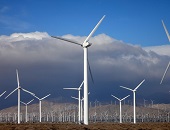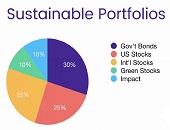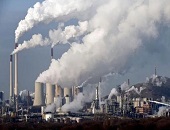How to Measure Nature Risk?
In June 2024, Dawn Lalonde, a beekeeper in northern Ontario noticed a sudden die-off of about a million bees. The bee die-off affects much more than the amount of honey she can collect from her hives. Without bees, local crops and orchards do not get adequately pollinated, leading to lower yields. This is but one recent example of a type of risk coming into new prominence in business and economics: nature risk. Nature risk, the loss of things in the world not created or domesticated by humans, affects businesses and economies directly, by impacting operations such as lack of pollination, […]
AI, ESG, and 1.5 Degrees
Moving to a sustainable future on a global scale is challenging. The United Nations Environment Program (UNEP) was founded to encourage member nations to develop sustainability agendas. Through their Financial Initiative (UNEPFI), the UN plans to harness the power of the financial system to this end as well. How can banks, insurers, and investors help accelerate sustainable development? How can they manage transition risk, namely the collection of non-physical risks associated with the transition to environmental sustainability? Does artificial intelligence (AI) have any role to play? In 2015, the Financial Stability Board created the Task Force on Climate Related Financial […]
Decarb Economics 101
To mitigate the consequences of climate change, the world requires international coordination. In 2015, the Paris Agreement was signed by 195 nations. Its long-term temperature goal is to keep the rise in mean global temperature to well below 2°C (3.6 °F) above pre-industrial levels, and preferably limit the increase to 1.5 °C (2.7 °F), which would reduce the worst effects of climate change. Many countries are developing policies to get themselves on a path toward achieving the agreed-upon 1.5 °C goal. Although present progress may seem piecemeal, in the words of a Chinese proverb, “A great journey begins with a single step.” The figure below […]
Tax or Cap?
Carbon tax or cap and trade? These are terms bandied about in the political arena as countries decide how to address global warming. “There is a clear consensus among economists,” said Roger Gordon, professor of economics at University of California at San Diego, “that the best way to address global warming is through the global use of a carbon tax on CO2 emissions.” On January 18, 2024, he was speaking at a webinar as part of the biweekly series of talks, titled the Virtual Seminar on Climate Economics, sponsored by the Federal Reserve Bank of San Francisco (FRBSF). “With a carbon tax,” […]
California Perspective
Imagine feeling shut out from important decisions in your community. Imagine feeling you were always the last choice when it came to hiring for the good jobs. If social studies showed this was always due to systemic bias, wouldn’t you want to work for change—if not for yourself, at least for the generation to come? This is the motivation behind the movement for diversity, equity, and inclusion (DEI). What are the fundamental principles to accelerate change around DEI? Can financial institutions adapt to DEI—and can their regulatory body, CFA Institute, lead the way? To showcase thriving financial institutions that have […]
Net-Zero Buildings
How do we build our homes and cities for a sustainable future? Climate change is such a huge, complex problem that tackling it can seem overwhelming. Fortunately, many organizations are addressing various parts of this colossal puzzle. One aspect is the “built environment.” Can existing buildings be modified to cope with climate change? Can buildings be redesigned to have net zero effect on the environment? On July 1, 2021, a panel of experts gave their thoughts on matters relating to climate change and buildings, as part of the New York Times Climate Hub series of webinars. This is the “Built […]
ESG disclosures: apples vs oranges
When it comes to environmental, social, and governance (ESG) funds, do you feel like we are still comparing apples with oranges? Isn’t it time for a global voluntary standard? “There’s been an explosion of interest in ESG investing, but the inconsistency in ESG-related disclosures could lead to an erosion of trust in the industry,” said Deborah Kidd, who is a director with the Global Industry Standards (GIPS). She was the first of two panelists who presented a consultation paper on “ESG Disclosure Standards for Investment Products” at a webinar titled “Improving Transparency and Comparability of Investment Products with ESG-related Features” […]
Investing in the greater good
Every day, more investors are converting their portfolios to socially responsible investing (SRI). But does being a socially responsible investor mean you will take a hit on performance? “Over the last five years, responsible investments have done at least as well as the traditional portfolio,” said Tim Nash, a fee-for-service financial planner who spoke at the webinar “Investing in the Greater Good” on August 18, 2020, sponsored by Questrade. Nash is the founder of Good Investing and blogs as The Sustainable Economist. He is also the lead researcher for Ethical Markets Green Transition Scoreboard research report, which details more than […]
Healthy skepticism
Selecting environmental, social, and governance (ESG) funds is a way that ordinary citizens can invest in an ethical way. But what does the increased interest in ESG investing shown by institutional and private wealth clients really mean? Is it paying off? Are we at a watershed moment for structural change in the way investors allocate resources? The move to consider ESG investing came some years ago with scandals such as Enron, and continues with more scandals such as Volkswagen’s Dieselgate and Facebook’s meddlings, said Pedro Matos, a professor of finance at University of Virginia and the author of the CFA […]










